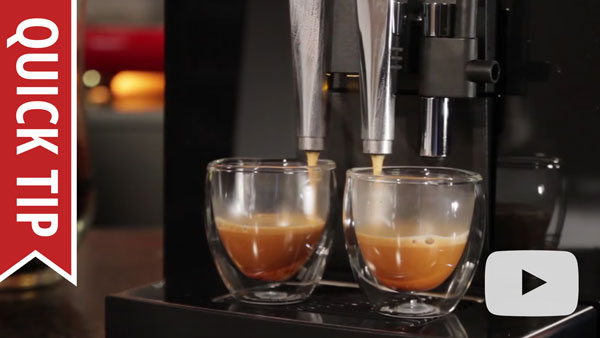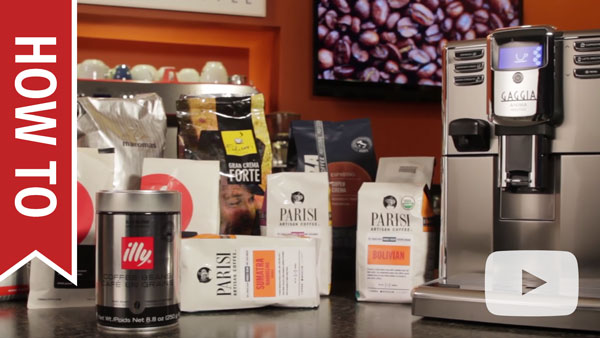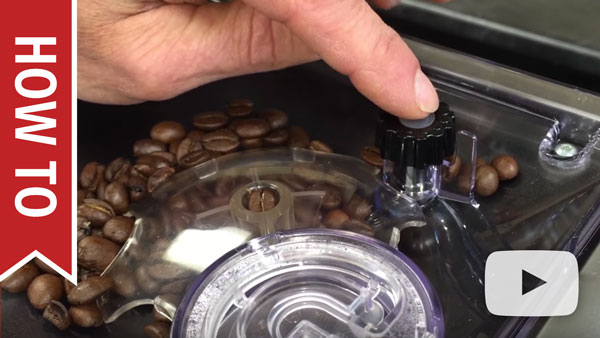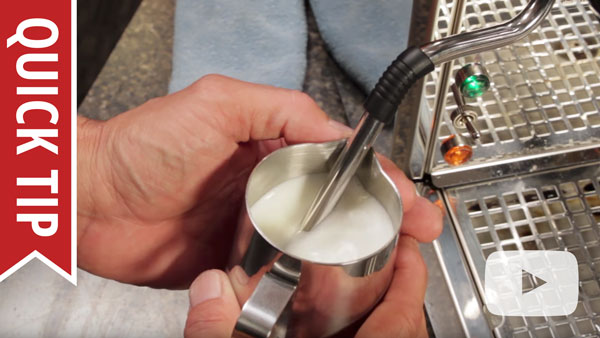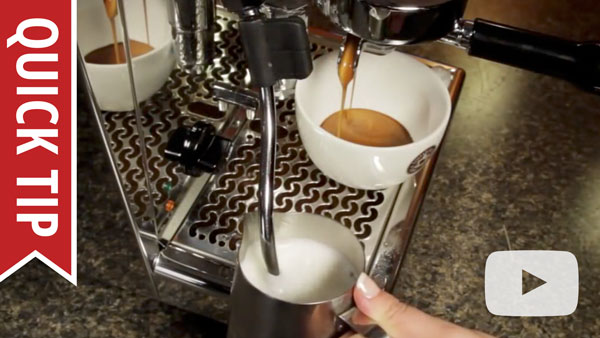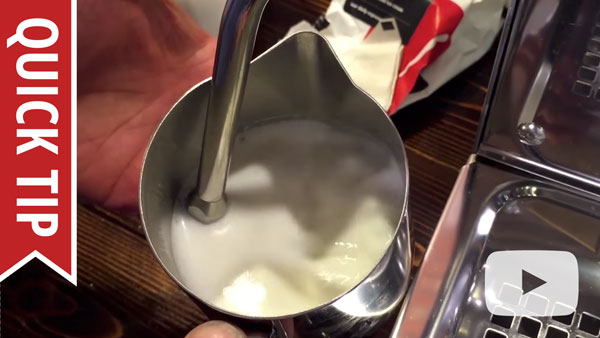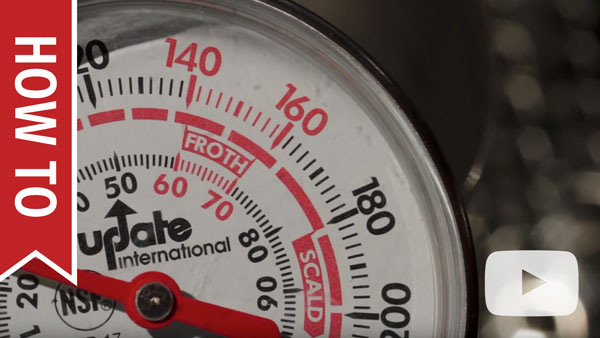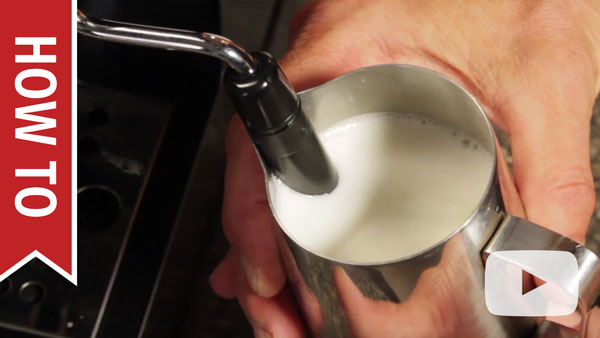Gaggia Platinum Swing Up
From Whole Latte Love Support Library
Install It
- Find a swanky spot in your home for your new machine to live, preferably where the morning sun shine down on your new, personal barista.
- Get the power cord and the accessories out of the box.
- Plug the machine directly into an outlet. Don't plug it into surge protectors, extension cords, or timers.
- Fill the water tank.
Educate Yourself
There are a few things you should know before heating up your super-auto for the first time to keep the the espresso flowing and the milk frothing. In the video on the right, you'll learn all about recommended roasts, water hardness, grind settings, milk frothing and the brew group—or, as we like to think of it, your super-auto's inner barista.
Get the Right Beans
Coffee is all about the caffeine (er... flavor), and super-autos don't disappoint, though, they are a teensy bit picky when it comes to certain roasts. In particular, super-autos are oily-bean-averse, meaning they don't like extra dark or flavored beans, as they tend to gunk up the grinder. Watch the video on the right to learn how to choose the beans of your dreams and keep your grinder clean.
Find the Right Grind
Consistency is key when it comes to grind size. With super-autos, you can just set it and forget it, but it's good to know how to fine tune for your favorite roasts. A good rule of thumb to keep in mind: light roasts and small volumes such as in espresso need a finer grind, while dark roasts and long coffees favor a coarser grind. Watch the video on the right to learn more.
Get Frothing
If you like cappuccinos, lattes, Flat Whites, and other milk drinks, you're gonna need to know how to froth.
Froth Better
For a few quick tips to improve your frothing technique, check out the video on the right. You'll learn a few tricks to make your drinks even better.
Frothing and Habits to Avoid
Frothing can be a delicate process. There's a number of mistakes you can make that really bring down the quality of your drinks. Check out the video on the right to learn some easy things you can avoid going forward.
Steam & the Heating Sweet Spot
The literal sweet spot for steaming milk falls between 140°F and 155°F, with smaller drinks on the lower end and larger drinks on the higher end. A quick rule-of-thumb we follow is to steam just until the frothing pitcher becomes a little too hot to hold comfortably.
Steam with Thermometers
If you're using a thermometer, you'll want to learn about lag time and how to read a frothing thermometer to correctly gauge the steaming process.
The Gaggia Latte Art Wand
Most Gaggia machines come standard with their specially designed pannarello wand, which automatically aerates milk while frothing to produce a fluffy cappuccino froth, but the latte art wand is closer to a commercial style wand, which lets the user cut down on the air for a liquidy latte milk. Check out the video on the right for tips on how to perfect your technique for latte milk smooth enough to draw flowers, or, you know, "galaxies."

